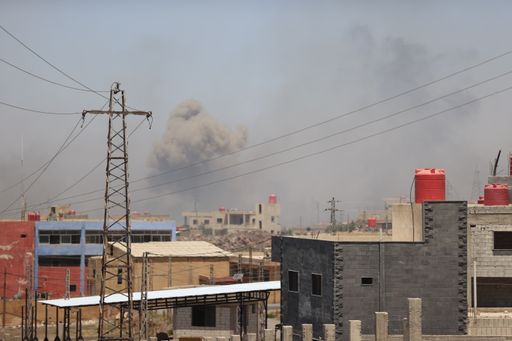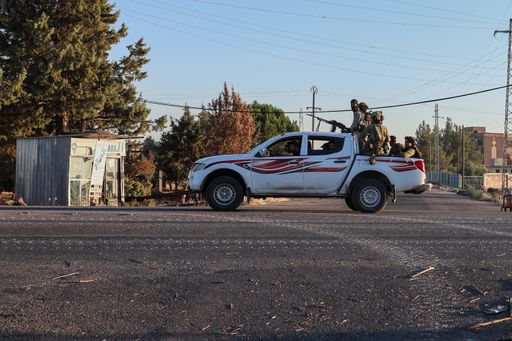Israel is supplying weapons, ammunition, and even paying salaries to Druze militias in Syria's Sweida province, according to senior Druze figures and a Western intelligence source, raising fears of a deliberate campaign to destabilise the war-torn country just as it begins to rebuild.
The two Druze militia commanders, who requested anonymity, told Reuters that Israel had delivered military supplies to help unify splintered Druze factions.
They and a Western source further claimed that Tel Aviv was directly paying many of the estimated 3,000 Druze militiamen.
Reuters, however, said it was unable to independently verify the supply of arms or payments, and the offices of Israeli Prime Minister Benjamin Netanyahu and Strategic Affairs Minister Ron Dermer did not respond to questions.

Israel's alleged interference comes at a moment of fragility in Syria, where the new administration of Ahmed al Sharaa has been attempting to stabilise the country after the fall of former regime leader Bashar al Assad.
Instead, Damascus accuses Tel Aviv of exploiting tensions in Sweida to sow discord and obstruct reconciliation.
The charges are compounded by Israel's recent escalation of air strikes in Sweida.
In July, its warplanes bombed southern Syria, including targets near the presidential palace, killing at least three people and wounding dozens.
While Israel insists its actions are meant to "protect" the Druze community — whose members also live in Israel — Damascus has condemned the raids as "treacherous aggression" and violations of international law.
For the Druze themselves, the picture is complicated.
Spiritual leaders in Syria have urged Druze militias to disarm and cooperate with Syrian government security forces, while prominent regional voices such as Lebanese Druze leader Walid Joumblatt have accused Israel of manipulating the community under the guise of protection.
The ceasefire reached in Sweida in July after days of bloodshed between Druze militias and Bedouin tribal groups marked a rare instance of Damascus ceding security responsibility to local actors.

Yet within hours of that fragile truce, Israeli strikes shattered the calm, deepening suspicions of its intent to prevent Syria from regaining stability.
Beyond air power, Israel has steadily expanded its ground presence.
In recent months, it has reportedly built at least ten new military bases across Quneitra and Daraa provinces, in violation of the 1974 Disengagement Agreement.
Many of these outposts are positioned on strategic hills and key road intersections, sparking mass displacement of civilians.
Syrian officials argue that Israel's objective is clear: to transform southern Syria into "an arena of endless chaos", in the words of President al Sharaa.




















